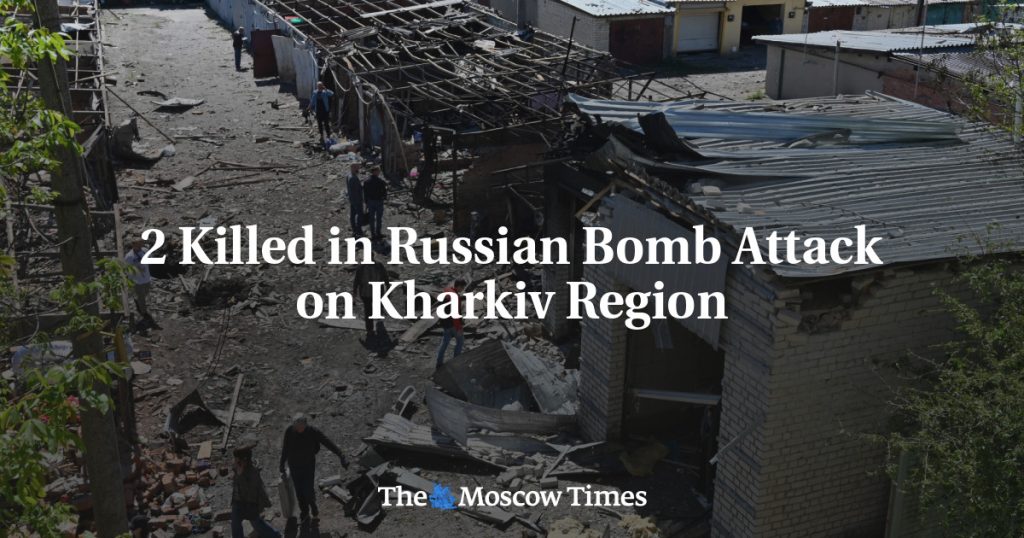A Russian guided bomb attack on Ukraine’s northeastern Kharkiv region resulted in the deaths of two civilians on Wednesday, as reported by the region’s governor. The area has been subjected to continuous bombardment from Russian artillery, rockets, and missiles since the full-scale invasion began in February 2022. The attack took place in Zolochiv village, where a car and a private home were struck by guided aerial bombs at 10:00 am. The governor, Oleg Synegubov, confirmed the deaths of a man and a woman who were in the car at the time.
The use of new powerful guided aerial bombs by Moscow in recent weeks has heightened the devastation caused by their attacks. The location of the attack, Zolochiv, is situated approximately 15 kilometers from the Russian border, making it a key target for Russian forces. In addition to the casualties, the attack sparked three fires in the area and resulted in injuries to two individuals in their seventies. The impact of these attacks on civilians and infrastructure in the Kharkiv region has been significant, adding to the suffering and destruction caused by the ongoing conflict.
The governor’s announcement of the casualties and damage caused by the Russian guided bomb attack serves as a grim reminder of the human cost of the war in Ukraine. The residents of Zolochiv village and other areas in the Kharkiv region continue to face the daily threat of Russian attacks, leading to loss of life and destruction of property. The use of advanced weaponry such as guided aerial bombs only escalates the danger faced by civilians, further complicating efforts to protect and assist those affected by the conflict.
The international community has condemned Russia’s actions in Ukraine, particularly the targeting of civilians and civilian infrastructure. The use of guided aerial bombs in populated areas raises concerns about violations of international humanitarian law and human rights abuses. Efforts to hold Russia accountable for its actions and to bring an end to the conflict have been ongoing, with diplomatic negotiations, economic sanctions, and military support for Ukraine playing key roles in the response to Russian aggression.
The situation in Ukraine remains volatile and unpredictable, with Russian forces continuing their attacks on various fronts in the country. The Kharkiv region, in particular, has been a target of intense bombardment and occupation by Russian forces, leading to widespread suffering among the local population. The use of advanced weaponry and tactics by Russia demonstrates the severity of the conflict and the urgent need for a resolution to end the bloodshed and destruction caused by the war.
As the conflict in Ukraine enters its second year, the need for humanitarian assistance and support for civilians affected by the war remains critical. Organizations working on the ground in Ukraine are providing aid, shelter, and essential services to those impacted by the violence, but ongoing funding and resources are needed to meet the growing needs of the population. The international community must continue to stand in solidarity with Ukraine and support efforts to bring an end to the conflict, protect civilians, and ensure accountability for those responsible for the violence and atrocities committed in the country.















